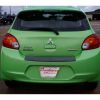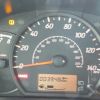| 1000 rpm: |
47.1 Nm / 34.7 lb-ft / 4.9 kW / 6.7 PS / 6.6 hp |
| 1100 rpm: |
53.5 Nm / 39.5 lb-ft / 6.2 kW / 8.4 PS / 8.3 hp |
| 1200 rpm: |
58.8 Nm / 43.4 lb-ft / 7.4 kW / 10 PS / 9.9 hp |
| 1300 rpm: |
63.3 Nm / 46.7 lb-ft / 8.6 kW / 11.7 PS / 11.5 hp |
| 1400 rpm: |
67.2 Nm / 49.6 lb-ft / 9.9 kW / 13.4 PS / 13.2 hp |
| 1500 rpm: |
70.6 Nm / 52.1 lb-ft / 11.1 kW / 15.1 PS / 14.9 hp |
| 1600 rpm: |
73.5 Nm / 54.2 lb-ft / 12.3 kW / 16.7 PS / 16.5 hp |
| 1700 rpm: |
76.1 Nm / 56.1 lb-ft / 13.5 kW / 18.4 PS / 18.2 hp |
| 1800 rpm: |
78.4 Nm / 57.8 lb-ft / 14.8 kW / 20.1 PS / 19.8 hp |
| 1900 rpm: |
80.5 Nm / 59.4 lb-ft / 16 kW / 21.8 PS / 21.5 hp |
|
|
| 2000 rpm: |
82.4 Nm / 60.8 lb-ft / 17.3 kW / 23.5 PS / 23.1 hp |
| 2100 rpm: |
84 Nm / 61.9 lb-ft / 18.5 kW / 25.1 PS / 24.8 hp |
| 2200 rpm: |
85.6 Nm / 63.1 lb-ft / 19.7 kW / 26.8 PS / 26.4 hp |
| 2300 rpm: |
87 Nm / 64.2 lb-ft / 21 kW / 28.5 PS / 28.1 hp |
| 2400 rpm: |
88.2 Nm / 65 lb-ft / 22.2 kW / 30.1 PS / 29.7 hp |
| 2500 rpm: |
89.4 Nm / 65.9 lb-ft / 23.4 kW / 31.8 PS / 31.4 hp |
| 2600 rpm: |
90.5 Nm / 66.7 lb-ft / 24.6 kW / 33.5 PS / 33 hp |
| 2700 rpm: |
91.5 Nm / 67.5 lb-ft / 25.9 kW / 35.2 PS / 34.7 hp |
| 2800 rpm: |
92.4 Nm / 68.1 lb-ft / 27.1 kW / 36.8 PS / 36.3 hp |
| 2900 rpm: |
93.3 Nm / 68.8 lb-ft / 28.3 kW / 38.5 PS / 38 hp |
|
|
| 3000 rpm: |
94.1 Nm / 69.4 lb-ft / 29.6 kW / 40.2 PS / 39.6 hp |
| 3100 rpm: |
94.9 Nm / 70 lb-ft / 30.8 kW / 41.9 PS / 41.3 hp |
| 3200 rpm: |
95.6 Nm / 70.5 lb-ft / 32 kW / 43.6 PS / 42.9 hp |
| 3300 rpm: |
96.3 Nm / 71 lb-ft / 33.3 kW / 45.3 PS / 44.6 hp |
| 3400 rpm: |
96.9 Nm / 71.5 lb-ft / 34.5 kW / 46.9 PS / 46.2 hp |
| 3500 rpm: |
97.5 Nm / 71.9 lb-ft / 35.7 kW / 48.6 PS / 47.9 hp |
| 3600 rpm: |
98 Nm / 72.3 lb-ft / 36.9 kW / 50.2 PS / 49.5 hp |
| 3700 rpm: |
98.6 Nm / 72.7 lb-ft / 38.2 kW / 52 PS / 51.2 hp |
| 3800 rpm: |
99.1 Nm / 73.1 lb-ft / 39.4 kW / 53.6 PS / 52.8 hp |
| 3900 rpm: |
99.5 Nm / 73.4 lb-ft / 40.6 kW / 55.3 PS / 54.5 hp |
|
|
| 4000 rpm: |
100 Nm / 73.7 lb-ft / 41.9 kW / 57 PS / 56.1 hp |
| 4100 rpm: |
100 Nm / 73.7 lb-ft / 42.9 kW / 58.4 PS / 57.5 hp |
| 4200 rpm: |
99.9 Nm / 73.7 lb-ft / 43.9 kW / 59.8 PS / 58.9 hp |
| 4300 rpm: |
99.8 Nm / 73.6 lb-ft / 44.9 kW / 61.1 PS / 60.2 hp |
| 4400 rpm: |
99.7 Nm / 73.5 lb-ft / 45.9 kW / 62.5 PS / 61.6 hp |
| 4500 rpm: |
99.5 Nm / 73.4 lb-ft / 46.9 kW / 63.8 PS / 62.8 hp |
| 4600 rpm: |
99.3 Nm / 73.2 lb-ft / 47.8 kW / 65.1 PS / 64.1 hp |
| 4700 rpm: |
99.1 Nm / 73.1 lb-ft / 48.8 kW / 66.3 PS / 65.4 hp |
| 4800 rpm: |
98.8 Nm / 72.9 lb-ft / 49.7 kW / 67.5 PS / 66.5 hp |
| 4900 rpm: |
98.4 Nm / 72.6 lb-ft / 50.5 kW / 68.7 PS / 67.7 hp |
|
|
| 5000 rpm: |
98.1 Nm / 72.3 lb-ft / 51.4 kW / 69.9 PS / 68.8 hp |
| 5100 rpm: |
97.7 Nm / 72.1 lb-ft / 52.2 kW / 71 PS / 69.9 hp |
| 5200 rpm: |
97.2 Nm / 71.7 lb-ft / 52.9 kW / 72 PS / 70.9 hp |
| 5300 rpm: |
96.7 Nm / 71.3 lb-ft / 53.7 kW / 73 PS / 71.9 hp |
| 5400 rpm: |
96.2 Nm / 70.9 lb-ft / 54.4 kW / 74 PS / 72.9 hp |
| 5500 rpm: |
95.7 Nm / 70.6 lb-ft / 55.1 kW / 75 PS / 73.9 hp |
| 5600 rpm: |
95.1 Nm / 70.1 lb-ft / 55.8 kW / 75.8 PS / 74.7 hp |
| 5700 rpm: |
94.4 Nm / 69.6 lb-ft / 56.3 kW / 76.6 PS / 75.5 hp |
| 5800 rpm: |
93.8 Nm / 69.2 lb-ft / 57 kW / 77.5 PS / 76.3 hp |
| 5900 rpm: |
93.1 Nm / 68.7 lb-ft / 57.5 kW / 78.2 PS / 77.1 hp |
|
|
| 6000 rpm: |
92.3 Nm / 68.1 lb-ft / 58 kW / 78.9 PS / 77.7 hp |
| 6100 rpm: |
90.4 Nm / 66.7 lb-ft / 57.7 kW / 78.5 PS / 77.4 hp |
| 6200 rpm: |
87.9 Nm / 64.8 lb-ft / 57.1 kW / 77.6 PS / 76.5 hp |
| 6300 rpm: |
84.7 Nm / 62.5 lb-ft / 55.9 kW / 76 PS / 74.9 hp |
| 6400 rpm: |
81 Nm / 59.7 lb-ft / 54.3 kW / 73.8 PS / 72.7 hp |
| 6500 rpm: |
76.7 Nm / 56.6 lb-ft / 52.2 kW / 71 PS / 70 hp |



 The Egg
The Egg

 Reply With Quote
Reply With Quote Cherry Bomb
Cherry Bomb
 Ninja Turtle
Ninja Turtle

 dspace9
dspace9
 Taevas
Taevas


 Speck
Speck
 Ghost
Ghost Onyx
Onyx


